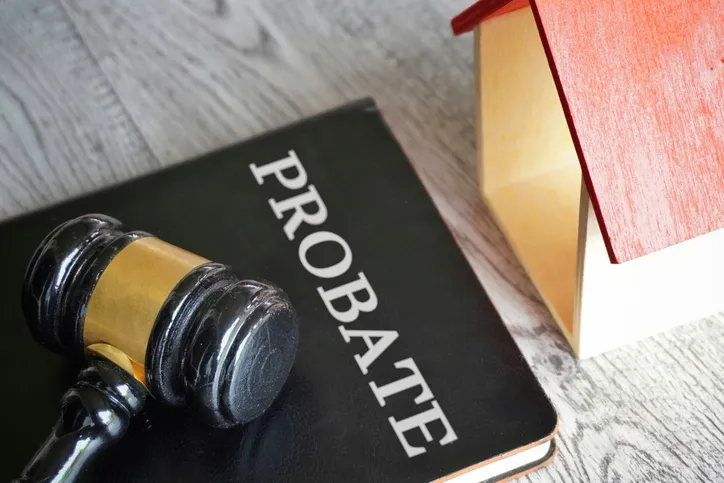When planning for the transfer of assets after death, two terms come up often: probate and trust. Probate is the court-supervised process of validating a will, paying debts and distributing assets to heirs. A trust is a legal arrangement that holds and manages assets for beneficiaries, which can allow them to bypass probate entirely. Choosing between either can impact costs and privacy, as well as how quickly and how smoothly assets pass to loved ones.
A financial advisor can work with your attorney to see if a trust fits your goals and keeps your estate plan on track.
What Is Probate?
Probate is the legal process of settling an estate after someone dies. Its main purpose is to see that the deceased person’s debts are paid and their remaining assets are distributed according to their will, or under state law if no will exists.
Probate is governed by state law and there can be significant differences between states. However, the steps in the probate process typically include:
- Validating the will (if one exists)
- Identifying and valuing assets
- Paying debts, taxes and other obligations
- Distributing assets to heirs or beneficiaries
The timeline for probate can vary from several months for simple estates to over a year for larger or contested ones. This delay is one reason many estate planners try to avoid probate if possible. Another drawback is that probate records are public. This means if an estate goes through probate, anyone can view details about the estate’s assets, debts and beneficiaries.
What Is a Trust?
A trust is a legal entity that holds and manages assets for the benefit of designated beneficiaries. The person who creates the trust is called the grantor. They appoint a trustee to manage the trust’s assets and follow the instructions laid out in the trust document. The people or organizations receiving the assets are the beneficiaries.
There are two main types of trusts:
- Revocable trusts, also known as living trusts, can be changed or revoked by the grantor during their lifetime.
- Irrevocable trusts cannot be altered once created, a loss of flexibility that is balanced by potential tax and asset protection benefits.
When a trust is properly set up and funded with assets retitled in its name, those assets can avoid probate entirely, saving time and preserving privacy.
Probate vs. Trust: Key Differences

These two legal mechanisms for passing property to beneficiaries function differently and can have significant implications for your heirs. Both offer advantages and disadvantages. Choosing between them requires evaluating your priorities and then selecting the approach that best meets your needs.
Here are five main distinctions:
- Control over asset distribution. Trusts give the grantor the ability to dictate exactly how and when assets are distributed. You can set detailed conditions, stagger inheritances over time, or designate specific uses for funds, such as education or healthcare. Probate generally follows the instructions in the will, subject to state law. It allows for less flexibility and personalization.
- Privacy implications. Probate is a matter of public record, meaning anyone can access details about your estate, including the value of assets and who inherits them. Trusts keep this information private, which can be a key benefit for families who value discretion.
- Time and cost considerations. Probate can take months or even years, depending on the complexity of the estate. It also often involves court fees, attorney costs and administrative expenses. A trust can streamline the transfer process and reduce delays, though it typically involves upfront legal fees to create and fund it properly.
- Flexibility and ability to update. Wills can be amended at any time before death, making them straightforward to adjust as circumstances change. Revocable trusts offer similar flexibility, but irrevocable trusts are much harder, or in some cases impossible, to alter once established.
- Legal oversight and protections. Because probate is supervised by the court, it provides a structured process for handling creditor claims and resolving disputes. Trust administration relies on the appointed trustee to carry out the grantor’s instructions and act in good faith, which requires choosing a trustworthy and competent individual.
When to Use Probate or a Trust
For small, straightforward estates, especially in states that offer simplified probate procedures, the court process may be relatively quick and inexpensive, making probate a practical option. Larger or more complex estates often benefit from the efficiency of a trust, which can help avoid lengthy court proceedings and reduce administrative costs.
Privacy concerns can also tip the scales toward using a trust, since it keeps asset details and beneficiary information out of the public record. Trusts are also particularly valuable for families with minor children or blended family dynamics. They allow you to set specific terms for when and how inheritances are distributed.
Trusts can also be coordinated with other estate planning tools such as wills, beneficiary designations and charitable giving strategies. This can help create a comprehensive plan that protects your assets and ensures your wishes are carried out.
How to Decide Between a Probate vs. a Trust
The right approach depends on your assets, family situation and long-term goals for transferring wealth. It’s not always a one-size-fits-all decision, and some estates benefit from using both tools in combination. Considering the following factors can help you choose the option that best matches your priorities for cost, efficiency, privacy and family harmony:
- Estate size and complexity. Larger or more complex estates with multiple properties, business interests or varied investments often benefit from trusts, which can streamline distribution and reduce administrative burdens. Smaller estates with simple asset structures may be handled efficiently through probate, especially if your state offers an expedited process.
- Privacy needs. Probate is public record, which means details about your assets and beneficiaries can be accessed by anyone. If confidentiality is a priority, a trust provides privacy by keeping estate matters outside the court system.
- Cost considerations. In some states, probate can be costly due to court fees, attorney charges and administrative expenses. Trusts avoid those ongoing court costs but do require upfront legal work and potential ongoing trustee fees.
- Family dynamics. Trusts can reduce potential conflict by spelling out inheritance terms clearly and appointing a trustee to act according to your instructions. Probate, however, offers court oversight, which can help resolve disputes if family tensions arise.
- Timing goals. Probate can take months or longer to finalize, delaying access to funds. Trusts generally allow beneficiaries to access assets more quickly, which can be critical if they rely on the inheritance for living expenses.
Bottom Line

When comparing probate vs trust, there’s no one-size-fits-all answer. Probate offers court oversight and structure, but it can be slow and public. Trusts provide privacy and flexibility, but require proper setup and ongoing management. The best choice depends on your estate’s size, complexity, privacy concerns and family situation.
Estate Planning Tips
- A financial advisor and estate attorney can help you build a plan that fits your situation and goals. Finding a financial advisor doesn’t have to be hard. SmartAsset’s free tool matches you with vetted financial advisors who serve your area, and you can have a free introductory call with your advisor matches to decide which one you feel is right for you. If you’re ready to find an advisor who can help you achieve your financial goals, get started now.
- While it may be tempting to save some money and plan your estate by yourself, you should still be careful with these DIY estate planning pitfalls.
Photo credit: ©iStock.com/Liudmila Chernetska, ©iStock.com/mohd izzuan, ©iStock.com/Jacob Wackerhausen
